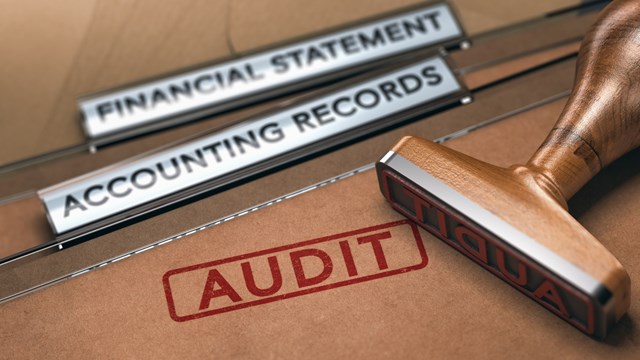If you want to find out about the history of a town, region or country, head to a museum or look it up on the Internet. If you want to find out about your family’s history, look at your photo album, whether it’s in a book or online. And if you want to find out your medical history, well, good luck!
But if you want to find out about past financial records of a condo or co-op development, that history is comprised of all sorts of documents, financial records, minutes of meetings, election results, invoices, and other records that are kept from year to year. How are these records kept, and what are the most important pieces of the “historical record” for board members and managers? The answers are complicated, but fortunately, financial professionals can help.
What You Should Know
To begin with, what is the minimum financial information that board members should know and understand about their buildings? While boards need a financial professional in their corner, that doesn’t mean that there’s not some basic information that they should know and understand on their own. Obviously, the accountant or other expert can’t be there all the time!
Most professionals agree that there's a list of documents that are essential to keep on-hand and up-to-date at all times. These include shareholder or unit-owner arrears, cash balances, unusual items such as special repairs or overtime, long-term unpaid invoices, reserve activity and balances, profit-and-loss statements (also called income statements), accounts payable, accounts receivable, subsidiary ledgers, bank reconciliations, check registers, general journals, open liabilities, expense and income vs. the budget, and major capital projects coming up. That's quite a list.
Rick Montanye, CPA, of the Uniondale-based accounting firm of Marin & Montanye LLP, says many of these items are contained in a monthly report provided by the managing agent, which is reviewed by the treasurer or other board members each month. “The treasurer then reports those financial activities to the balance of the board at a monthly meeting,” he says. “In general, the board members should be apprised of any shareholder or unit owner arrears issues, cash balances, unusual items such as special repairs or overtime in a particular month, reserve activity and balances, and any unpaid invoices that are over 30 days.”
Neil Sonenberg, CPA, of the Manhattan-based certified public accounting firm of Rosen Seymour Shapss Martin & Co. LLP, says that while the board president and treasurer are responsible for this financial information, “All board members should know accounts payable, reserves, and cash positions on a monthly basis.”
And Jules Frankel, CPA, of certified public accountant and consultant Wilkin & Guttenplan, which has offices in New York and New Jersey, says that good management companies will produce budget versus actual reports (meaning a report that shows how well you are meeting your budget for income and expenses) throughout the year.
With all this information, there’s plenty of opportunity for mistakes and/or oversights by administrators or boards. Here are some of them that have been known to happen:
“One common mistake,” says Karen Sackstein, a CPA based in Fair Lawn, New Jersey, “is the use of cash-basis financial statements. A cash-basis system only shows the cash inflows and outflows. The numbers do not reflect the true income and expenditures of the organization, and can easily be manipulated to present an untrue financial picture.” Another common mistake, she adds, is to delegate full control to a managing agent or a board member without any oversight.
Similarly, Montanye says that “The most common mistake made by boards is assuming that someone else is maintaining records. Quite frequently, it is assumed that the managing agent will have historical records, or that the treasurer has everything.” Unfortunately, this isn’t always the case—a control system is necessary. Records can get lost when a building changes managers, to name just one possible example.
Frankel stresses that the management companies his accounting firm deals with rarely make mistakes. But in those few instances when they do, he says, among the items he has found are not reconciling bank statements, not producing quarterly or monthly reports on a timely basis, not resolving unreconciled items, and not making sure that carrying charges are credited to the correct person’s account.
So when it comes to financial paperwork, filings, record keeping and disclosure, what is the difference between condos and co-ops? Readers of this publication certainly know the intrinsic difference between co-ops and condos: in a condo you actually own the unit from the walls in, whereas in a co-op you own shares in an entity that owns and holds title to the land and building.
When it comes to recordkeeping, there are very definitely many similarities between co-ops and condos. However, says Montanye, cooperatives normally have mortgage documents and covenants to maintain, while condominiums do not. “Tax certiorari (assessment reduction) records are also maintained by cooperatives because they have a direct effect on the budget, while in condominiums, tax certiorari records are necessary, but the taxes themselves are paid directly by unit owners,” he says.
“The co-op financial statements,” Sackstein says, “include the assets and related depreciation expense and accumulated depreciation expense and accumulated deficits, as the cooperative housing corporation holds title to all real and personal property. In a condominium association’s balance sheet, there is typically no real property shown, since the building and related improvements are common property that is owned by each condominium owner based on their proportionate share of the common elements as maintained in the governing documents.”
Changing Gears
Now that we have an idea of what records have to be kept, where exactly do they have to be kept?
In most cases, they are kept at the managing agent’s office, although in self-managed buildings, they can be kept in an office on-site. Increasingly nowadays, these records are scanned and stored digitally, making them more easily accessible to board members and managers. Even if they are kept as hard copies by the managing agent, however, it is important for the board to have access to their community's records; all too often, a building switches managing agents, and the new manager doesn’t know where the old manager kept them.
Since boards as well as managers change over the years, says Montanye, “Normally the best place to maintain the information is in a dedicated, secure common area, so that information can be passed from one board to the next.” In addition to whatever storage the development or building has, adds Sackstein, storage on a backup server at a remote location is a good idea in case of disasters like fire or flood.
We’ve seen what some of the problems can be. How can condo and co-op administrators streamline their buildings’ financial profiles to make them simpler, more transparent, more efficient and less likely to result in missed deadlines, missing paperwork and penalties?
Obviously, the board and managing agent should have a regular schedule to review documents and reports and to discuss them. A checklist, with a schedule of important due dates, will keep things running on an efficient basis.
“What management agents should have is a variance report,” says Sonenberg. If a variance from expected expenses is found, he said, the manager should highlight it and be ready to discuss it at the next board meeting.
Checks & Balances
Another suggestion Sonenberg makes is to streamline buying procedures for the building or development. “Some buildings buy supplies every week, and they’re very disorganized,” he says. “They should have some approved suppliers. They should use big [established] companies as board-authorized suppliers.” Once a relationship is established, these companies, because of their expertise, could expedite purchases in a smooth, professional way.
Montanye believes that “It's important to make sure that there are no unnecessary bank or financial accounts that may become dormant. Second, it is important to make sure that two board members are signatories on every bank account, including those accounts maintained by management. Duplicate copies of bank and financial statements can be sent to multiple individuals so that responsible board members are kept apprised of the activity and can report accordingly to board members. Many financial institutions will do this for free.”
According to Frankel, it can also streamline matters to accept electronic payments for carrying charges. “If they [the unit owners or shareholders] pay by check as opposed to electronically, many banks have a lockbox center where the checks go to the bank, not the management company. The bank opens the envelopes, credits, the accounts, and sends an electronic file to the management company to update their records.”
Finally, it’s important to get more unit owners or shareholders involved and to set up committees where they can volunteer. Otherwise, the same small group of volunteers will have to carry the ball on everything, and they will be overtaxed and overspent.
What resources for boards and/or managers to get solid advice on how to better organize and manage their financial records?
The information in this article is very minimal, but there are many resources that are available to interested co-op and condo boards and property management companies.
Most boards have their own professionals, such as CPAs and attorneys. Each type of professional, says Montanye, can provide a different type of advice. CPAs can provide advice about record retention; lawyers can provide advice about legal matters, contracts or mortgage refinancing; and managing agents can give examples about practices that are working well in other buildings.
Seminars, including those given by trade organizations or at shows such as the Cooperator's annual Co-op & Condo Expo, are another resource. Sackstein’s firm, for example, offers clients, especially new board members, a seminar on how to read and understand financial reports. “There is no one correct way of maintaining records,” she stresses. “Any system that allows easy access and retrieval will work, whether it is manual or electronically-based.”
As we mentioned earlier, the building’s accountant is not always available. So Frankel recommends that, when attending trade shows, board reps or managers look at some of the accounting systems or software being offered, and see whether they are more efficient than the systems they are using now.
Simple, basic practices-like good recordkeeping, regular maintenance and good communication between the condo/HOA board and the building administrators are keys to keeping the community fiscally sound and on track.
Raanan Geberer is a freelance writer and a frequent contributor to The Cooperator.







Leave a Comment